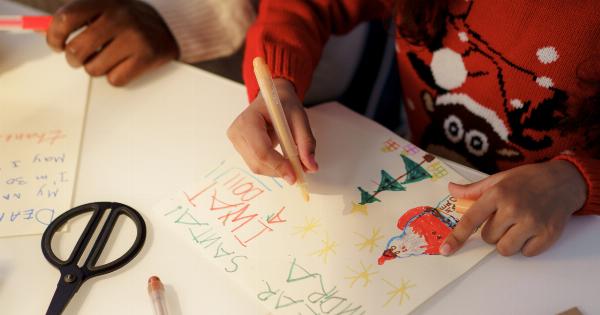Introduction:.
Skepticism is a trait inherent in the human psyche. It is the questioning, doubting, and critical thinking that propels us forward in search of truth and understanding.
While some may argue that skeptics hinder progress, there is a certain beauty in their ability to challenge ideas and push boundaries. This innate trait can touch anyone, regardless of their gifts or talents. In this article, we will explore how skepticism influences even the most brilliant minds, and how it can drive innovation and discovery.
The Gifted Mind: A Haven for Skepticism
Society often places those with extraordinary abilities on a pedestal, assuming that their brilliance shields them from doubt or skepticism. However, the truth is quite the opposite.
Gifted individuals tend to have a keen intellect and insatiable curiosity, which paves the way for skepticism to flourish.
The gifted mind is a breeding ground for critical thinking. Gifted individuals possess the ability to see beyond the surface-level understanding, delving deeper into complex subjects.
This intellectual prowess often leads them to question commonly accepted beliefs and challenge conventional wisdom.
Critical Inquiry: Fueling Intellectual Growth
The skeptical mind seeks evidence, questions assumptions, and demands logical explanations. This quest for truth drives intellectual growth and innovation, even for the most gifted minds.
By embracing skepticism, these individuals push the boundaries of their own understanding and constantly challenge themselves to think outside the box.
For example, famous polymaths such as Leonardo da Vinci and Albert Einstein are known for their inquisitive nature and relentless pursuit of truth.
Their skepticism allowed them to question prevailing theories and explore unconventional ideas, leading to groundbreaking discoveries and advancements in various fields.
The Role of Skepticism in Art and Creativity
Skepticism is not limited to science and academia; it also plays a crucial role in artistic and creative endeavors. Artists, musicians, and writers often question societal norms, challenge traditional aesthetics, and explore new artistic forms.
Their skeptical minds drive them to challenge the status quo and break free from the confines of convention.
The Renaissance period serves as a prime example of skepticism fueling artistic innovation. Artists like Michelangelo and Raphael questioned traditional artistic techniques and embarked on novel artistic experiments.
Their skepticism led to groundbreaking techniques and styles that shaped the art world for centuries to come.
The Constant Pursuit of Knowledge: Skepticism in Education
In the realm of education, skepticism acts as a catalyst for intellectual development. Gifted students are not content with mere repetition and regurgitation of information; they crave deeper understanding and seek logical explanations.
Skepticism allows these students to question their educators, challenge established theories, and explore alternative perspectives.
Teachers who encourage skepticism foster a classroom environment that promotes critical thinking, creativity, and problem-solving skills.
By nurturing the skeptical minds of gifted students, educators facilitate their intellectual growth and empower them to become independent thinkers.
Skepticism vs. Cynicism: A Delicate Balance
While skepticism is a powerful tool for intellectual growth, it is essential to distinguish it from cynicism. Cynicism breeds negativity and a dismissive attitude towards ideas and beliefs without proper evaluation.
Skepticism, on the other hand, involves a healthy questioning process that seeks evidence-based reasoning.
Gifted individuals must strike a delicate balance between skepticism and cynicism.
By embracing skepticism with an open mind, they can channel their doubts and inquiries into constructive pursuits, ultimately driving innovation and meaningful contributions to society.
Overcoming Skepticism: The Power of Evidence
Despite the benefits skepticism offers, it can sometimes hinder progress if one becomes entrenched in doubt and mistrust. However, the skeptics themselves are often the first to acknowledge the power of evidence and empirical data.
Gifted individuals, with their analytical minds, understand that skepticism without evidence is baseless. They recognize the value of empirical observations, experiments, and logical reasoning in obtaining reliable conclusions.
By focusing on gathering solid evidence, skeptics can overcome their doubts and contribute to the advancement of knowledge and understanding.
Embracing Skepticism: A Gateway to Innovation
Skepticism, when embraced and channeled appropriately, becomes a gateway to innovation. Gifted minds driven by skepticism have the ability to unravel mysteries, challenge existing paradigms, and propose revolutionary ideas.
The world owes many scientific breakthroughs, artistic masterpieces, and societal advancements to the curious and skeptical minds of our past and present.
Moreover, the interaction between skeptics and individuals with different perspectives fosters healthy debates and encourages intellectual growth.
By challenging each other’s ideas, skeptics and their peers can refine their own arguments, enrich their understanding, and collectively move forward towards a better future.
Skepticism: A Universal Trait
Contrary to popular perception, skepticism is not limited to the intellectual elite or the academically accomplished. It is a trait that resides within each of us, waiting to be awakened and nurtured.
By embracing skepticism, we can unlock our own intellectual potential and contribute to the collective pursuit of knowledge and understanding.
In conclusion, skepticism is a powerful force that can touch anyone, even those deemed gifted. Gifted individuals, with their inherently curious and critical minds, are particularly inclined to embrace skepticism.
By questioning, doubting, and exploring new ideas, they drive innovation and intellectual growth. Skepticism is not a barrier to progress but rather a catalyst for change, leading us to new frontiers of knowledge and understanding.






























